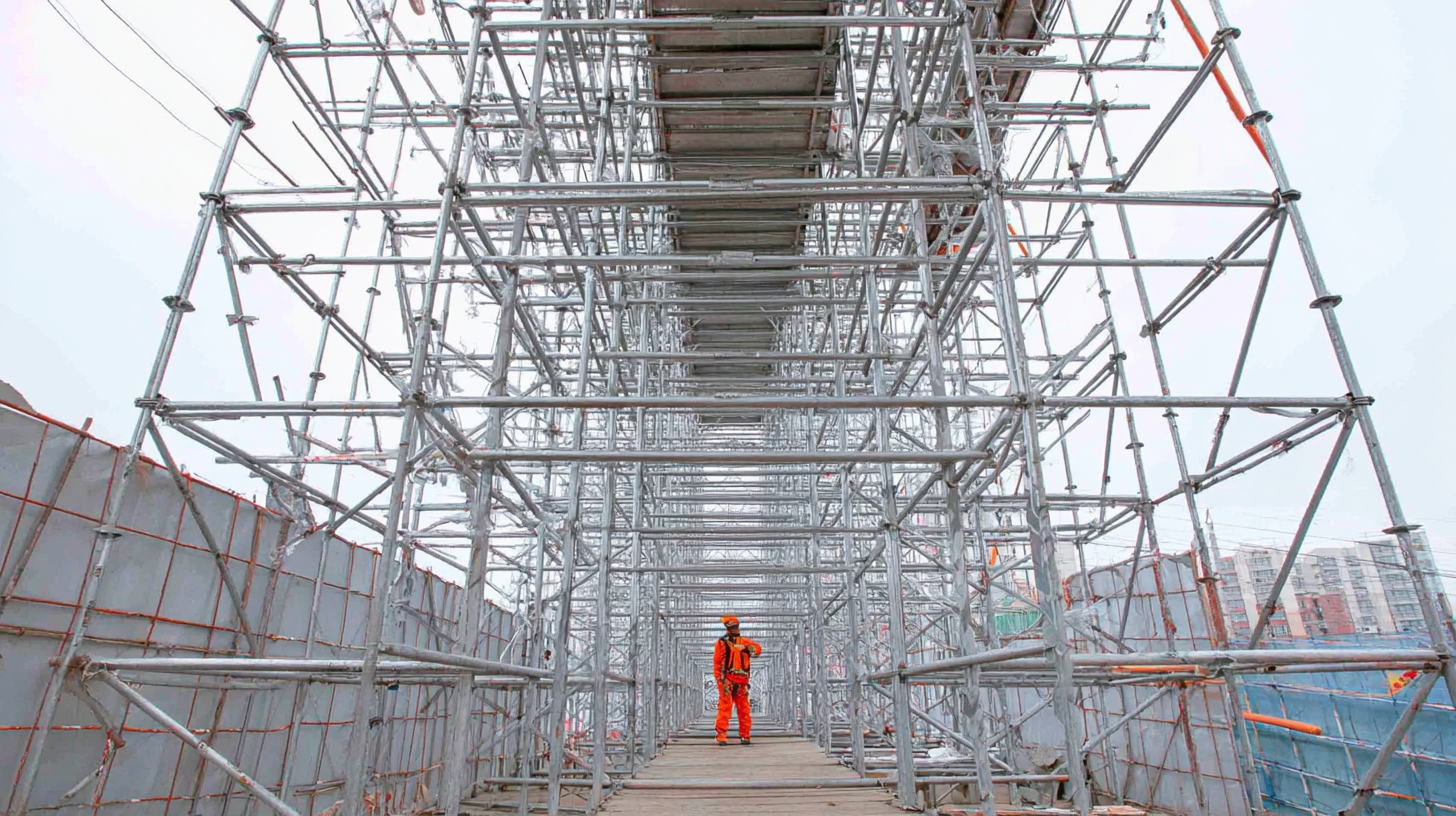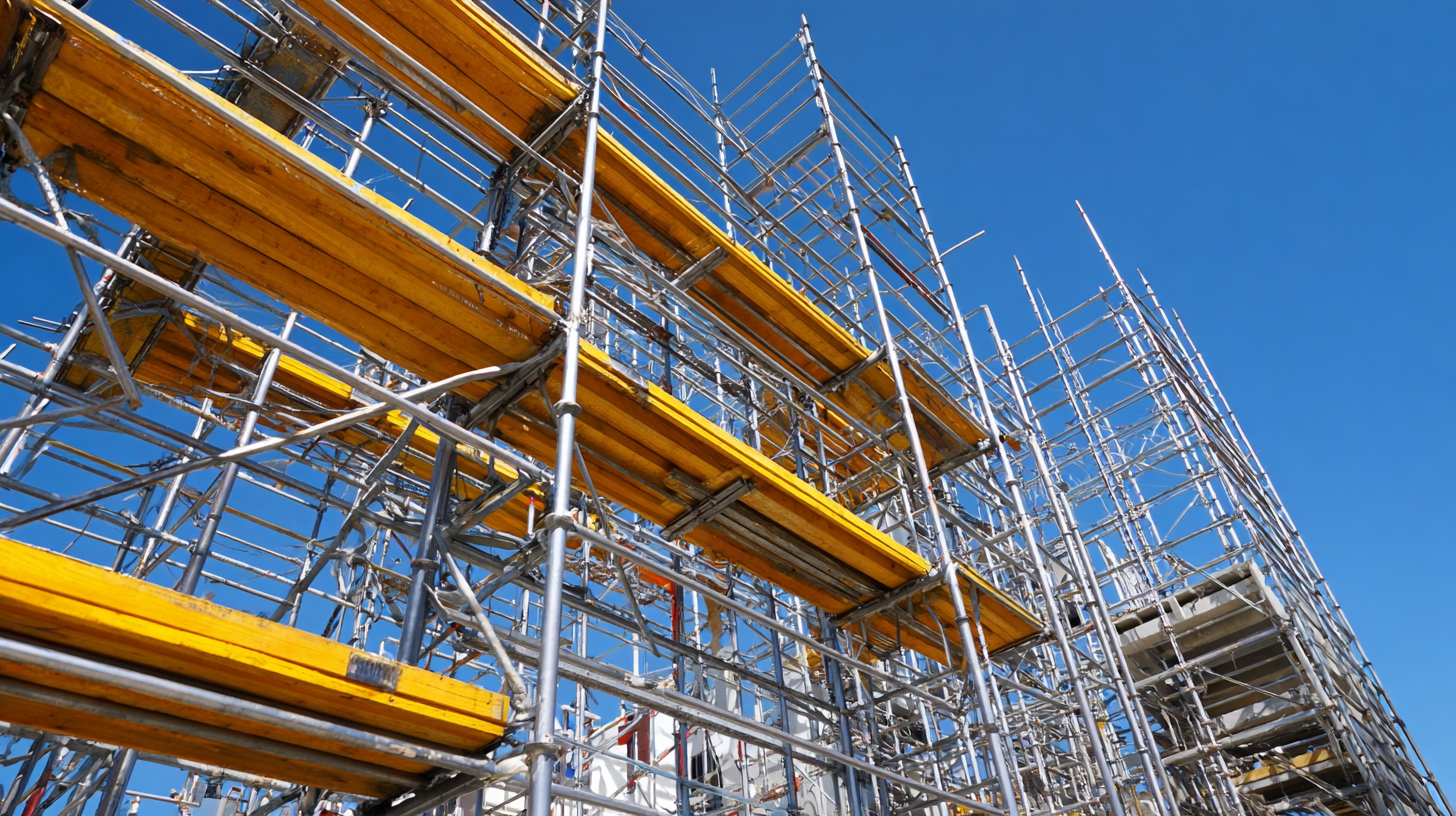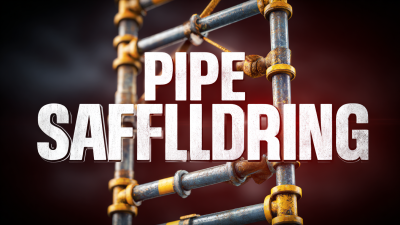 +86 18531742341
+86 18531742341
Leave Your Message
When it comes to construction projects, one of the most critical factors is selecting the right scaffolding system, and among the various options available in the market, Ringlock scaffolding has gained immense popularity due to its versatility and durability. However, the effectiveness of this scaffolding system largely depends on choosing the right Ringlock Scaffolding Suppliers. With numerous suppliers worldwide, identifying those who offer high-quality materials, reliable service, and competitive pricing can be a daunting task. In this blog, we will explore the eight best tips to guide you in selecting the ideal Ringlock Scaffolding Suppliers that meet your specific project requirements. Whether you are a contractor, project manager, or a DIY enthusiast, these insights will help ensure that your scaffolding needs are met with excellence, ultimately contributing to the safety and success of your construction endeavors.

When selecting ringlock scaffolding suppliers, evaluating their quality standards is paramount. Start by researching the supplier’s certifications and industry compliance. Look for recognized international standards such as ISO 9001, which indicates a commitment to maintaining a high quality management system. This ensures that the products they deliver are reliable and meet safety regulations. Additionally, inquire about their manufacturing processes and materials used, as quality raw materials directly impact the durability and performance of the scaffolding systems.

Another crucial aspect is to examine customer reviews and testimonials. Reach out to previous clients to gain insights into their experiences with the supplier. This will help you understand the supplier’s reliability, responsiveness, and overall service quality. Furthermore, suppliers should provide transparent information about their testing procedures. Confirm if they conduct regular quality assurance tests and adhere to safety protocols to ensure the scaffolding systems can withstand the demands of construction projects. By focusing on these quality indicators, you can make a more informed decision when choosing the right ringlock scaffolding supplier for your needs.
In the scaffolding industry, understanding certification and compliance is critical for ensuring safety and quality. With increasing scrutiny on training standards, especially highlighted by recent audits in regions like Washington, it's essential to select suppliers who adhere to recognized safety regulations. ISO 45001 plays a pivotal role in guiding health and safety programs across various sectors. This standard not only promotes a proactive approach to workplace safety but also aligns with the guidelines established by the Occupational Safety and Health Administration (OSHA).
When choosing ringlock scaffolding suppliers, one should prioritize those with relevant certifications. For instance, companies that hold a certification such as the BSEN 1004 Kitemark demonstrate their commitment to quality and safety. Compliance with local and international safety standards can significantly reduce risks on construction sites, safeguarding workers from potential hazards like falls—an all too common occurrence in the industry. By focusing on suppliers who meet these stringent compliance measures, businesses can create a safer working environment, reflecting wider trends in the global scaffolding market projected to grow significantly in the coming years.
When comparing the cost and value of ringlock scaffolding, it is crucial to analyze several key factors that can greatly impact your decision. One primary consideration is the material quality used in the scaffolding production. According to a recent report by Statista, the global construction sector is expected to grow by 4.2% annually, leading to increased demand for durable scaffolding solutions. Suppliers who use high-grade steel or aluminum not only create more resilient structures but also offer better long-term investment due to reduced maintenance needs.
Another critical factor is the supplier's adherence to safety standards and certifications. The European Committee for Standardization (CEN) reports that approximately 36% of construction site accidents are related to scaffolding failures. Suppliers that prioritize safety compliance and provide well-documented certifications can significantly increase the value of your investment. Additionally, a study from the Construction Industry Institute notes that effective training programs on scaffolding use can reduce incidents by up to 25%. Therefore, partnering with suppliers who offer comprehensive training and support enhances not just safety but overall project efficiency, driving better value for your ringlock scaffolding needs.
When selecting a ringlock scaffolding supplier, the experience and reputation of the supplier play a crucial role in ensuring project success and safety. Experienced suppliers not only understand the technical specifications and compliance requirements of scaffolding systems but also navigate the complexities of codes and regulations across different regions. Their extensive knowledge helps in providing tailored solutions that meet specific project needs, which is essential in avoiding potential pitfalls associated with improper installation or inadequate support structures.
Moreover, a supplier’s industry reputation acts as a valuable indicator of reliability and quality. Suppliers with a solid track record often have established relationships with construction professionals, allowing them to offer insights and recommendations that can enhance project efficiency. Evaluating past client testimonials and case studies can reveal how a supplier’s products performed in real-world scenarios, further underscoring their capability to deliver safe and effective scaffolding solutions. Therefore, prioritizing supplier experience and reputation is not just about making a purchase—it’s about forging a partnership that can significantly impact the success of your construction projects.

When selecting ringlock scaffolding suppliers, analyzing customer reviews is crucial for gaining insights into their performance and reliability. Customers often share their experiences with product quality, delivery times, and after-sales service, which can significantly influence your decision-making process. By examining the feedback left by previous clients, you can identify suppliers who consistently meet or exceed expectations and those who may have issues with product durability or service responsiveness. This first-hand information not only highlights the strengths and weaknesses of various suppliers but also helps in building a clearer picture of what to expect.
In addition to customer reviews, case studies can offer valuable insights into how a supplier performs in real-world situations. These studies often illustrate how a supplier has handled specific projects, challenges they faced, and the solutions they implemented. By reviewing these case studies, you can evaluate the supplier's expertise in managing complex scaffolding needs, their safety compliance standards, and their ability to deliver on time. This in-depth analysis of both reviews and case studies equips you with the knowledge needed to make an informed choice, ensuring you partner with a supplier that aligns with your project objectives and quality standards.






